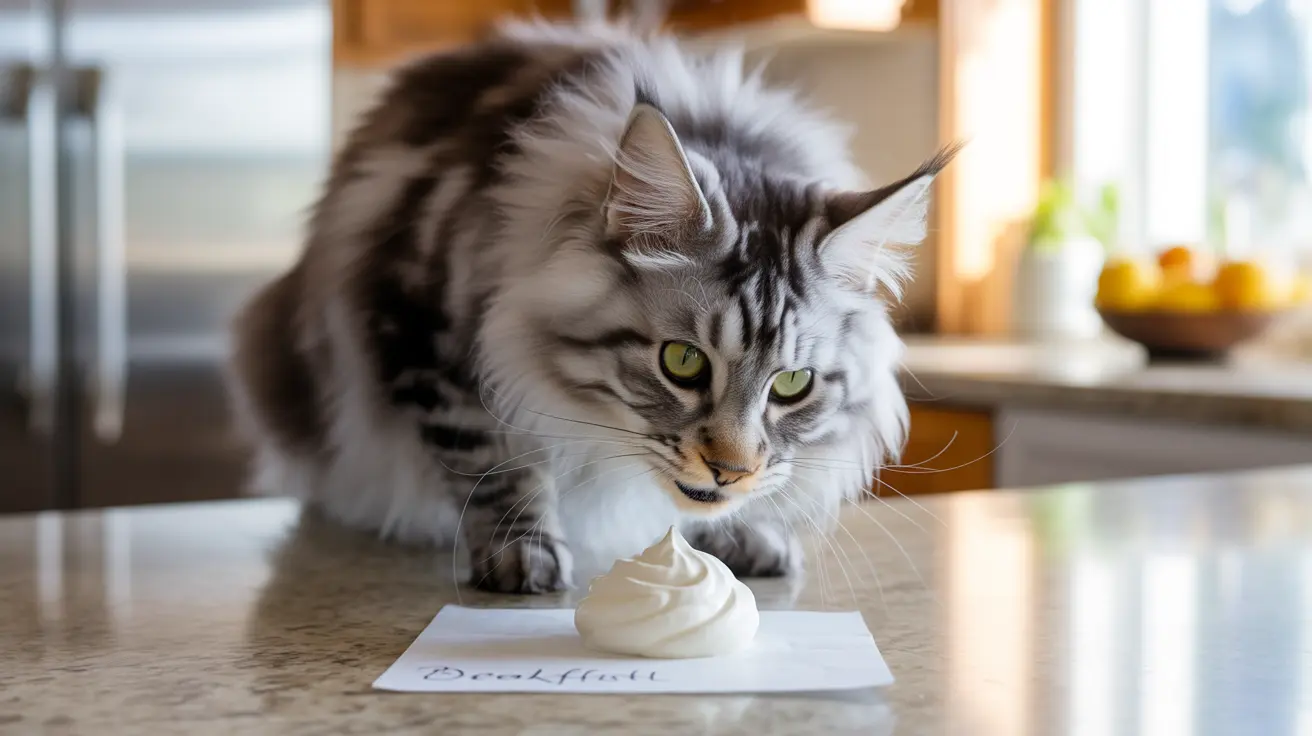Many cat owners have watched their feline friends show intense interest in dairy products, particularly creamy treats like sour cream. While those pleading eyes might be hard to resist, it's crucial to understand whether sour cream is actually safe for your cat to consume.
In this comprehensive guide, we'll explore the relationship between cats and sour cream, examining both the potential risks and safety considerations to help you make an informed decision about sharing this dairy product with your pet.
Understanding Cats and Dairy Products
Most adult cats are lactose intolerant, meaning they lack the necessary enzyme (lactase) to properly digest dairy products. While kittens can digest their mother's milk, they typically lose this ability as they grow older, making dairy products potentially problematic for their digestive system.
Despite this biological reality, many cats remain attracted to dairy products like sour cream, possibly due to their high fat content and appealing texture.
The Truth About Sour Cream and Cats
While sour cream isn't toxic to cats, it's far from an ideal treat. The high fat content and presence of lactose make it a potentially problematic food choice for most felines. Even a small amount could cause digestive issues in lactose-intolerant cats.
Nutritional Considerations
Sour cream offers little nutritional value for cats. While it contains some protein and calcium, these nutrients are better obtained through proper cat food formulated specifically for feline dietary needs. Additionally, the high caloric content could contribute to weight gain if fed regularly.
Potential Risks and Side Effects
Feeding sour cream to your cat can lead to several health issues:
- Digestive upset (diarrhea, vomiting)
- Stomach pain and bloating
- Gas and discomfort
- Weight gain
- Potential pancreatitis from high fat content
Safe Feeding Guidelines
If you decide to offer sour cream to your cat, follow these important guidelines:
- Limit portions to tiny amounts (no more than 1/4 teaspoon)
- Monitor for any adverse reactions
- Only offer plain, unsweetened sour cream
- Never make it a regular treat
- Discontinue immediately if any digestive issues occur
Healthy Alternatives to Sour Cream
Instead of sour cream, consider these safer alternatives for treating your cat:
- Commercial cat treats formulated for feline nutrition
- Small pieces of cooked, plain meat
- Cat-specific milk products designed to be lactose-free
- Specialized cat yogurt products
Frequently Asked Questions
Is it safe to give my cat sour cream, and how much is too much?
While not toxic, sour cream isn't recommended for cats. If offered, limit it to no more than 1/4 teaspoon occasionally. Any more than this could cause digestive issues.
Why do many cats have digestive problems after eating sour cream or other dairy products?
Most adult cats lack the enzyme lactase needed to digest lactose in dairy products. This deficiency leads to digestive upset, including diarrhea, vomiting, and bloating.
Can sour cream help me give medication to my cat, and what precautions should I take?
While sour cream might help administer medication, it's better to use pet-specific products designed for this purpose. If you must use sour cream, use the absolute minimum amount necessary and consult your veterinarian first.
What are the risks of feeding sour cream regularly to my cat?
Regular sour cream consumption can lead to obesity, digestive issues, potential pancreatitis, and nutritional imbalances. It may also create unhealthy eating habits and food preferences.
Are there safer alternatives to sour cream for cats who like dairy flavors?
Yes, there are specially formulated cat treats and lactose-free dairy products designed specifically for felines. These alternatives provide the creamy texture cats enjoy while being safer for their digestive system.
Conclusion
While cats might be attracted to sour cream, it's best to avoid feeding it to them regularly. The potential risks outweigh any momentary pleasure your cat might get from this treat. Instead, focus on providing your cat with nutritionally appropriate treats designed specifically for felines.
Remember, when in doubt about any food items, always consult with your veterinarian, who can provide personalized advice based on your cat's specific health needs and conditions.






